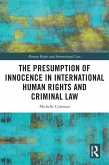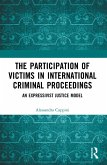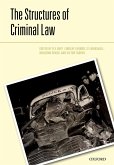The third book in the Criminalization series examines the constitutionalization of criminal law. It considers how the criminal law is constituted through the political processes of the state; how the agents of the criminal law can be answerable to it themselves; and finally, how the criminal law can be constituted as part of the international order. Addressing the ways in which and the grounds on which types of conduct can be justifiably criminalized, the first four chapters of this volume focus on the questions that arise from a consideration of the political constitution of the criminal law. The contributors then turn their attention to the role of the state, its institutions and officials, and their role not only as creators, enactors, interpreters, and enforcers of the criminal law, but also as subjects of it. How can the agents of the criminal law also be answerable to it? Finally discussion turns to how the criminal law can be constituted as part of an international order. Examining the relationships between domestic laws of different nation-states, and between domestic criminal law and international or transnational law, the chapters also look at the authority and jurisdiction of international criminal law itself, and its relationship to other dimensions of the international order. A vital examination of one of the most important topics in modern criminal legal theory, this volume raises new questions central to the study of the criminal law and offers new suggestions for addressing them.
Dieser Download kann aus rechtlichen Gründen nur mit Rechnungsadresse in A, B, BG, CY, CZ, D, DK, EW, E, FIN, F, GR, HR, H, IRL, I, LT, L, LR, M, NL, PL, P, R, S, SLO, SK ausgeliefert werden.









